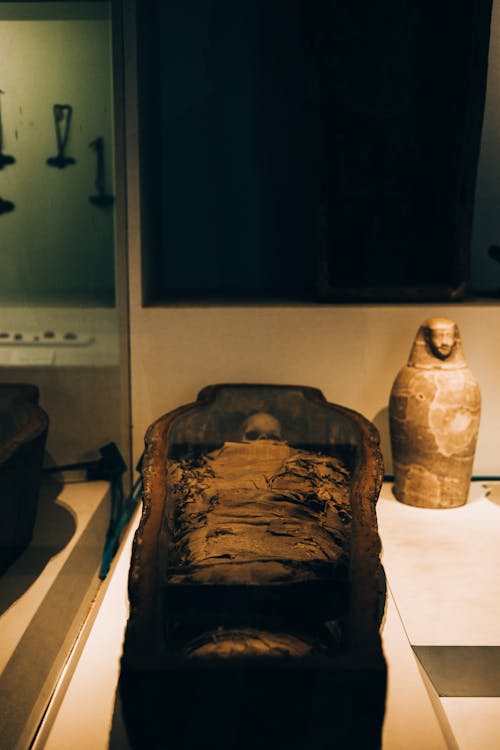40 Fascinating Historical Facts You Won’t Learn in School
10. Napoleon’s Battle with the Bunnies
Napoleon Bonaparte by many accounts one of the most celebrated military leaders in history was notable for being short and having a hot temper. But have you ever considered whether what became known as his signature “Napoleon Complex” may have had a more laughable origin? Picture this In 1807, on a hunting expedition organized by his chief of staff, Napoleon was attacked… not by soldiers but by rabbits.
Here’s what happened The general was probably expecting a standard hare hunt, when all of a sudden he was besieged by hundreds of rabbits. Yes, rabbits small, fuzzy little creatures. But these were no ordinary bunnies. They were starving, savage and ruthless. They bum-rushed him in waves, climbing all over his clothes, getting up in his way, preventing him from escaping. Napoleon, up to his ears in a furry army, holding a weapon while still in shock. Just imagine the anguish of this. After all, how many generals can claim to have lost a battle to a bunch of rabbits?
We understand why he might’ve been angry after that getting taken down by a bunch of fluffy creatures would put anyone in a bad mood. Wouldn’t you also be a bit mad if rabbits almost beat you? What a come-down for the man who used to conquer half of Europe!
11. A Potted History of Heroin
Well, picture this: a time when doctors actually prescribed heroin for stuff like a cough and headaches. Sounds crazy, right? But this was back in the late 1800s, when Bayer (the same company that makes today’s aspirin) was promoting heroin as a “non-addictive” replacement for morphine. They believed it would be a safer alternative for those suffering from pain. But spoiler alert, they were very wrong. The technology helped transform heroin into the most addictive drug the world had ever known, creating the scourge we now know.
I wonder what those early doctors are thinking! I mean, they had to think they were onto something bigger, right? Providing someone an “innocent” treatment for what ailed them, while unknowingly sowing the seeds for a serious addiction crisis. Imagine your doctor prescribed you heroin to help you feel better. It’s crazy to think of all the advancements in medical science since then. It also leads you to a greater appreciation of how far we’ve come in terms of understanding what drugs really can be dangerous.
It’s incredibly mind-blowing that something this harmful was marketed as a medicine that helped. This makes you wonder what other so-called “miracle cures” of earlier days were, in fact, harmful? We can’t think we know it all now, but what would future generations look back on and say, “Hold up, they thought that was safe?” Heroin’s history is definitely a wild cautionary tale of times before it seems we really understood the power of addiction.
12. The Baby Raffle
OK, you read that right: People in 1911 Paris could literally enter a lottery for the chance to win a baby. I know, it sounds like it’s from a dystopian novel, but this bizarre episode did take place. The Paris Foundling Hospital established what was known as the “Loterie de Bébés” to find homes for orphan children. People who were unable to have their own children would enter, and if their number was drawn, they received the opportunity to adopt a baby. Weird, right? But in defense of my choices before you judge there was some method to the madness.
As you have to admit, the prospect of a baby raffle sounds pretty shocking today, and at the time it was viewed as a humane way of finding homes for children. Since orphan babies often had very hard lives on the streets, being adopted and having a shot at a better life wasn’t too bad, right? The system took, you know, the best effort possible it investigated prospective parents first to see that they were good candidates. And yet, it must have been pretty nerve-wracking to enter a lottery where the prize was not fun in the sun, or a check in the bank, but a baby to raise!
Think about the kind of parents who enter this raffle, who wonder if their number will be called, if they will have the good fortune of receiving a child. It is an odd cocktail of hope and desperation. We have improved so much in how we handle adoption, but the baby lottery was of its time strange yet oddly, well, thoughtful, in a way. If you were a parent in 1911, what would you have thought? Would you take that chance?
13. Ancient Romans and Their Weird Obsession with Pee
To see an example, let’s go way back in time, to Ancient Rome, when urine wasn’t something you just flushed down the toilet it was an incredibly valuable substance. I’m not kidding. The Romans used it for all kinds of stuff, but one of the craziest is that they used it as a mouthwash to whiten their teeth. Well, it seems that ammonia in urine is a good thing when it comes to stains. Think how great it would be to take a mouthful of pee to deodorize your breath and brighten your smile. Sounds pretty insane, right? However, come on, it’s not like they had jazzy toothpaste in those days.
And it went beyond teeth urine had all kinds of Roman power. They used it to wash their laundry, and even as a fertilizer for their fields. Urine was also thought to have therapeutic effects. They kind of had their own make-your-own version of today’s cleaning and health products. Pee, of course, is pee, so it wouldn’t be that big a deal unless you lived in ancient Rome, in which case you would’ve gotten accustomed to the idea of urine being part of your everyday life, right?
But can you imagine living in a world in which some miracle cure-all is the grossest thing most people could ever imagine? Urine was as necessary to Romans as soap is to us now. Who knew that something so simple could have so many uses? But if you were a Roman, would you really want to gargle with pee, or do you do anything you could to avoid it? Actually, it’s somewhat surprising that it took so long for people to conclude maybe this wasn’t the best approach!
14. Einstein Could Have Been Israel’s President
We all know Einstein as the brilliant physicist who revolutionized our understanding of the universe, but do you also know he was a big political thinker? He not only opposed racism and fascism but also strongly supported the founding of the state of Israel. His roots in the Jewish community gave him a natural connection to the cause of Israel. Just think how different the country could have been had the world had, as its president, an Einstein!
When the role of Israel’s second president was up for grabs in 1952, they approached Einstein. The offer was intended as a tremendous honor, but Einstein was reluctant. He acknowledged he was “deeply moved” by the offer but does not possess the right skill set for the political job. Isn’t that fascinating? This genius decided to remain a scientist instead of becoming a politician, which shows that obviously not all the genius are also politicians.
Can you imagine Einstein wearing a presidential tux instead of his characteristic bowtie and unpressed hensley? That’s fun to think about, but perhaps it’s best that he stuck to what he knew best molding the future of physics. Well, that shows a great deal of humility to make, don’t you think? He could have been president, but his real legacy lay in science.
15. Why Black Cats Are Bad Luck
Black cats adorable, enigmatic, and sometimes associated with misfortune. But where does this particular superstition originate from? In 1233, Pope Gregory IX ruled that black cats were the embodiment of evil, linking them to witchcraft. It was during this period that black cats became considered portentous of bad things. It’s unbelievable that something as innocent as a cat could be demonizing for centuries, don’t you think?
This stigma lasting for millennia, where during the middle ages black cats would be killed. Just think of all the cute, cuddly kittens that were harmed because of this. Something so simple and sweet became a symbol of fear and evil, and that’s sad, too. But gradually the superstition wore off. Many people now think that black cats are lucky or special, showing that not all superstitions last for all time.
So, what’s the deal now? Do some still consider black cats to be unlucky? Even though the superstition is alive and well in some areas, many people are welcoming black cats into their homes with a mind to reverse the ancient hexes. Would you adopt one is this record up at all for you? They’re as cute as cats can ever be, aren’t they?
16. The Tragic Fate of Henry Rathbone
The night of the tragedy President Lincoln’s assassination was so traumatic for the man who attempted to STOP it. When Booth fired his shot at Lincoln, Rathbone tried to detain Booth but to no avail not only was he too late, but Booth stabbed him in the tussle. Can you imagine the trauma? Just a wrong place wrong time one of those people who will ever be mixed up with one of America’s most important moments. He’s been haunted by that for the rest of his life.”
Over the next few years, however, Rathbone’s life went off the rails. The guilt of failing to prevent the assassination mixed with the psychological toll of that night plunged him into deep depression. He became more paranoid and went downhill mentally. Could you imagine living with that guilt? You can barely imagine it at all.
And his own grim conclusion arrived in 1883, when Rathbone, acting erratically, murdered his wife, Clara, and tried to murder their children. It is such a tragic, sad fall for somebody who had at one time been orbiting around greatness.” He died in 1911, having spent the last years of his life in an asylum. What do you think could’ve saved him was it the tragedy, itself, or whatever led him to that breaking point?
17. The Strange History of Cannibalism
Cannibalism it’s a spine-chilling word, though in the 16th century it might not have sent such shivers down the public spine as it does today. Rich Europeans thought eating humans would cure them. But they didn’t just eat anybody the body had to be special. Mummification had been perfected in Egypt, and Egyptian mummies were of very high quality and in high demand. Which is crazier, eating someone for health or assuming mummies are a delicacy?
The wealthy thought that eating bits of a mummy might pass the powers of the mummified body to the person consuming it. Can you fathom the idea of eating something so… morbid? And they weren’t just consuming it willy-nilly; in some instances people were grinding up bones and using them in various ways “medicinally.” We all know about the wild, weird treatments people used to use, even today, but this one really takes the cake or, should I say, the mummy flesh?
Eventually, the practice of using human remains as “medicine” fell by the wayside, and people began to realize that eating people, maybe, wasn’t the best method of promoting health and wellness. It’s hard to imagine, buried so deep in time, that something so grisly could’ve been accepted as a legitimate remedy. How would you have felt if you had lived during that time? Would you have bought into the healing properties of dried mummy flesh, or would you have fled the other direction?
18. Al Capone’s STD Secret
Most people are familiar with Al Capone, the infamous gangster who dominated Chicago during Prohibition. But what’s even more shocking is that he went to prison, not for all his barbaric crimes, but for tax evasion! Things took a very awry turn during Capone’s time in Alcatraz. Turns out, he had contracted syphilis in his youth but never received treatment. By the time he was imprisoned, the disease had eaten away at his brain, reducing him to a shell of the man he was.
Imagine this a criminal genius slowly beginning to lose his mind, no longer fit to operate the empire he created. He became erratic, and his mental state declined to the point where he was less a feared mob boss and more a tempered 12-year-old. His decline from syphilis was so grim that by the time his sentence ended, he was in the infirmary no longer the danger he once was. For such a brutal figure, it’s a weirdly poetic ending, don’t you think?
But the real kicker? Capone was released on parole for “good behavior” though it seems more likely that his mental faculties were so impaired, they couldn’t see him as a threat anymore. Who would’ve thought that a disease like syphilis could fell one of the most feared men in American history?














